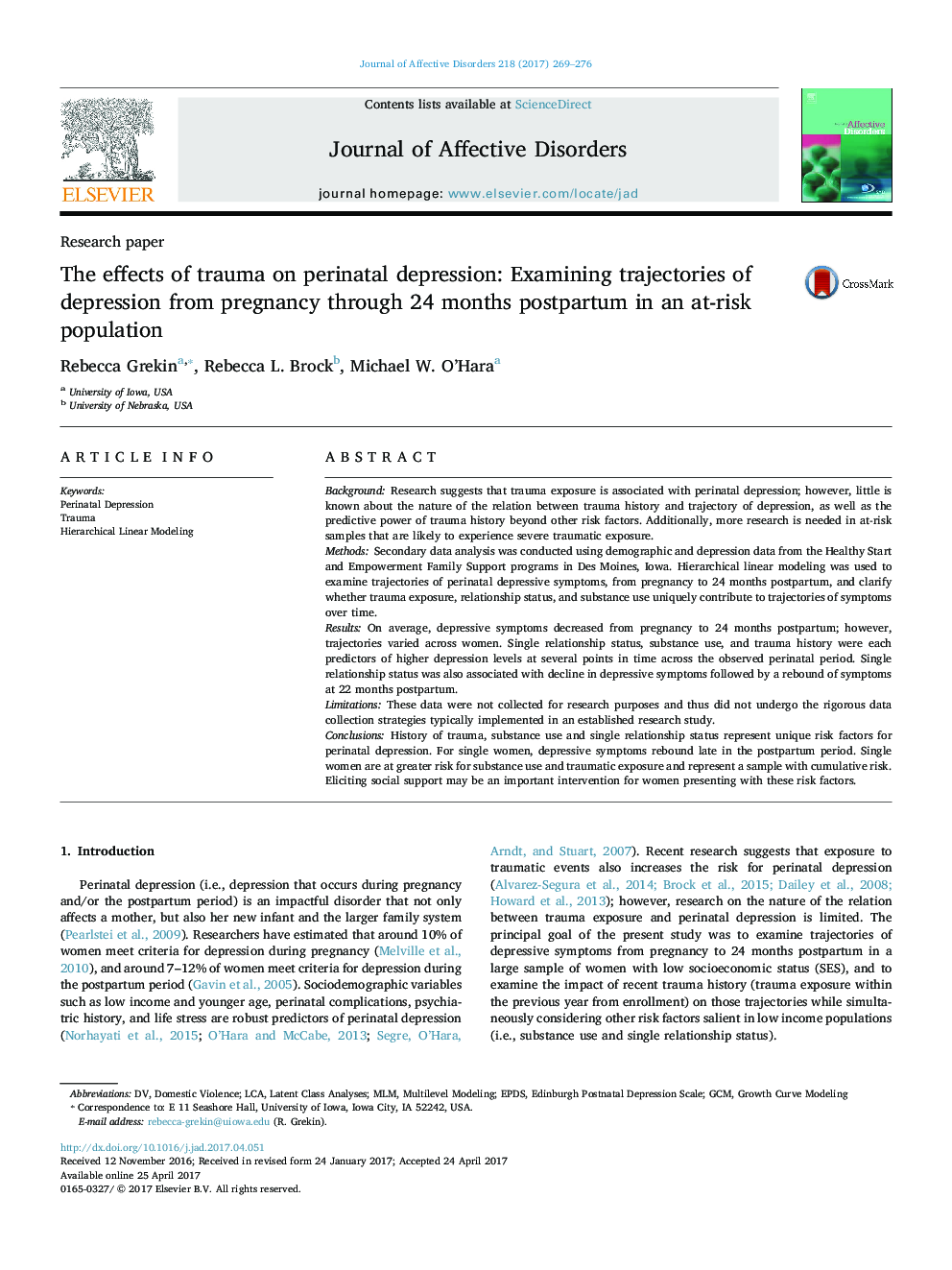| کد مقاله | کد نشریه | سال انتشار | مقاله انگلیسی | نسخه تمام متن |
|---|---|---|---|---|
| 5721956 | 1608107 | 2017 | 8 صفحه PDF | دانلود رایگان |
- Depressive symptoms declined over the perinatal period, but rebounded for some women.
- Trauma, substance use, and relationship status predicted levels of depression.
- Single relationship status predicted the trajectory of depressive symptoms.
BackgroundResearch suggests that trauma exposure is associated with perinatal depression; however, little is known about the nature of the relation between trauma history and trajectory of depression, as well as the predictive power of trauma history beyond other risk factors. Additionally, more research is needed in at-risk samples that are likely to experience severe traumatic exposure.MethodsSecondary data analysis was conducted using demographic and depression data from the Healthy Start and Empowerment Family Support programs in Des Moines, Iowa. Hierarchical linear modeling was used to examine trajectories of perinatal depressive symptoms, from pregnancy to 24 months postpartum, and clarify whether trauma exposure, relationship status, and substance use uniquely contribute to trajectories of symptoms over time.ResultsOn average, depressive symptoms decreased from pregnancy to 24 months postpartum; however, trajectories varied across women. Single relationship status, substance use, and trauma history were each predictors of higher depression levels at several points in time across the observed perinatal period. Single relationship status was also associated with decline in depressive symptoms followed by a rebound of symptoms at 22 months postpartum.LimitationsThese data were not collected for research purposes and thus did not undergo the rigorous data collection strategies typically implemented in an established research study.ConclusionsHistory of trauma, substance use and single relationship status represent unique risk factors for perinatal depression. For single women, depressive symptoms rebound late in the postpartum period. Single women are at greater risk for substance use and traumatic exposure and represent a sample with cumulative risk. Eliciting social support may be an important intervention for women presenting with these risk factors.
Journal: Journal of Affective Disorders - Volume 218, 15 August 2017, Pages 269-276
